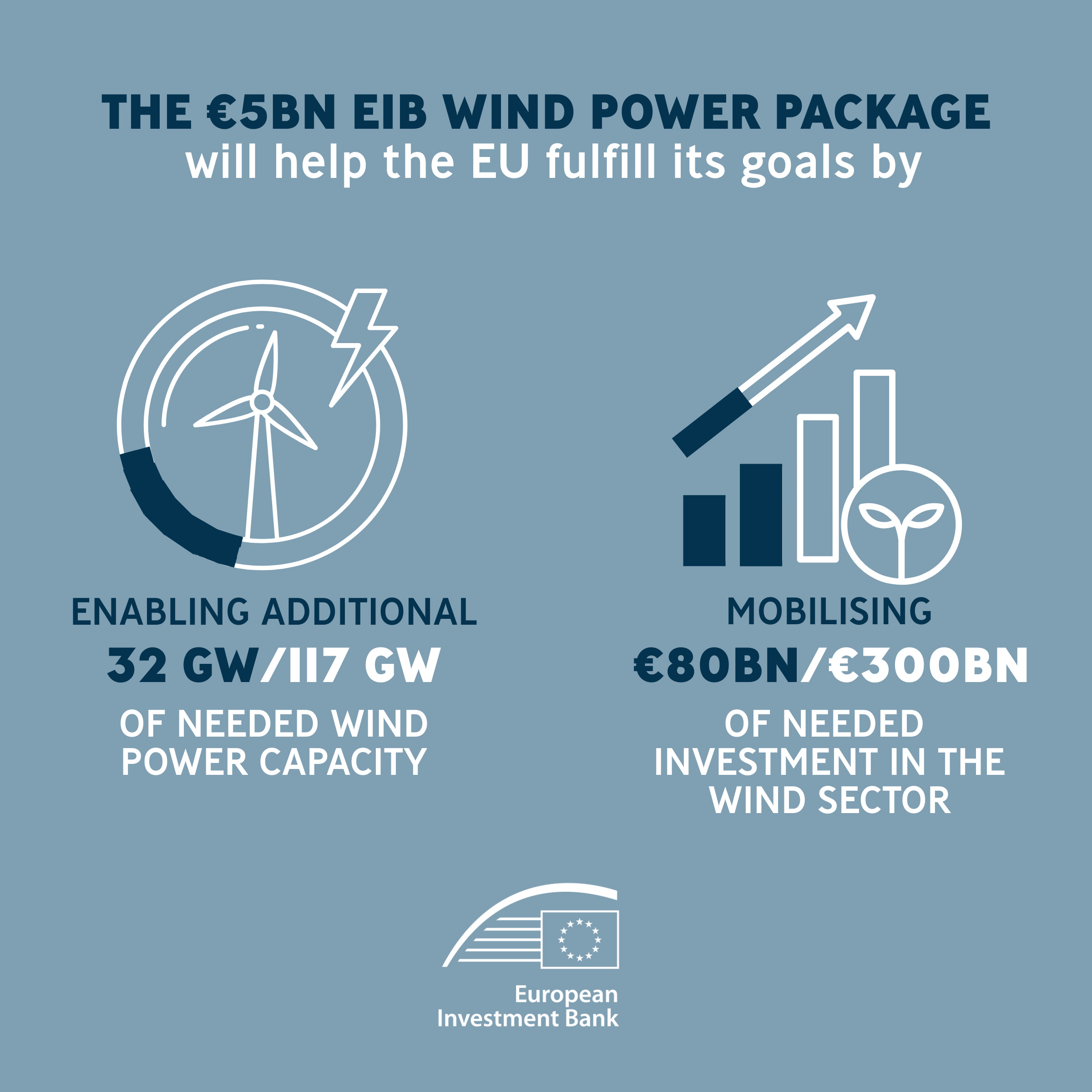Read more
- The €5 billion package aims to support the EU-based wind energy industry by providing counter-guarantees to banks, allowing them to issue more guarantees needed by manufacturers for new projects.
- The support is critical to foster job security and creation in the growing renewable energy sector and catalyse €80 billion in wind farm investments enabling around 32GW of newly installed wind power capacity.
- While historically an EU success story, the wind sector now faces challenges like uncertain demand, slow and complex permitting, and resource and workforce shortages.
- The European Commission's European Wind Power Action Plan aims to ensure clean energy transition goes with industrial competitiveness through a healthy and competitive wind energy supply chain, a secure project pipeline and a global level playing field.
- The plan called on the EIB to develop counter-guarantees to de-risk banks active in the wind sector, easing financial strain on wind energy manufacturers caused by an expanding order book and a set of macro-economic challenges.
- It is estimated that to reach the 45% renewable energy share target by 2030, installed wind capacity will need to increase to approximately 440GW. This is more than double the current capacity of 203GW. Reaching capacity targets would require €600 billion investment.
- The wind industry is a highly specialised and concentrated business. Only a few manufacturers with production facilities in the EU have the capacity, technology and know-how to manufacture and install the needed components.
- Without more EIB guarantees, manufacturers could face order limitations shifting production outside the EU, harming competitiveness.
- The package supports objectives of the European Green Deal, the Net Zero Industry Act, and REPowerEU for clean energy and EU-produced technology.
Eligibility
REPowerEU+ supports projects in the following areas:
- Renewable energy, energy efficiency and grid development
Expanding and accelerating financing of renewable energy projects, as well as targeted energy and sustainable transport infrastructure such as electricity grids and storage or electric vehicle charging infrastructure. - Net-zero technologies and raw materials
Financing the manufacturing and production of key net-zero infrastructure for strategic green technologies and the extraction, processing and recycling of strategic raw materials crucial for the green transition. - Workforce development
Investments in skills and training for the green transition, including workforce training, support for education systems and higher education institutions.
Get support
The EIB, a long-standing partner
Our support to the energy sector

